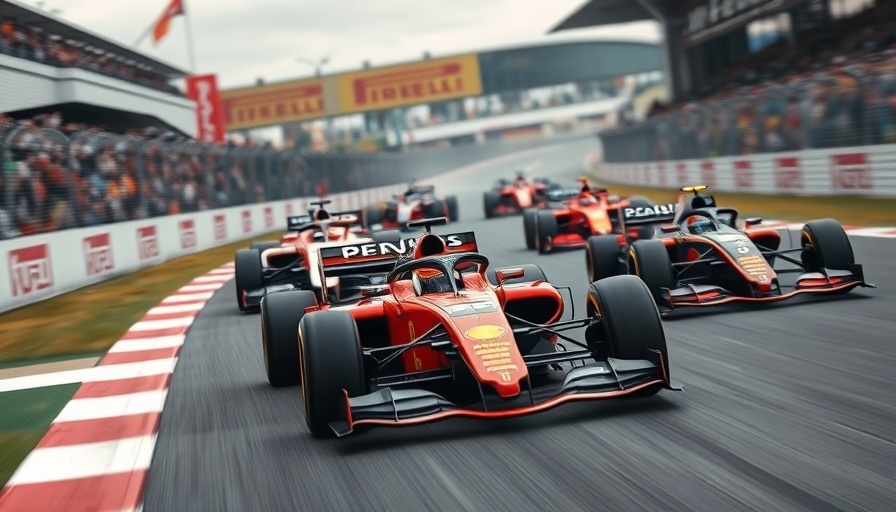
F1 Drivers’ Outcry Sparks Major Policy Changes
After widespread backlash from drivers and fans alike, Formula 1's governing body, the FIA, has taken a monumental step by reducing penalties for swearing or criticizing officials. In a dramatic shift, the FIA's newly amended penalty guidelines are set to change the course of driver management forever.
A Shift in Penalties for F1 Drivers
The revised penalties mark a significant decrease from the previous guidelines, where frontline drivers faced fines up to €40,000 (£33,700) for their first infraction and penalties steep enough to include race bans for further offenses. The FIA has now lowered the initial penalty to €5,000 (£4,200), which better reflects the realities of the high-pressure racing environment that drivers operate in.
What Influenced the Changes?
The outrage stems from a stricter regime that the FIA had implemented earlier this year. Many in the F1 community found this approach dictatorial and in stark contrast to the sport's spirit. The criticism reached a boiling point after reigning champion Max Verstappen had been made to apologize for his outspoken remarks at a press conference in Singapore. Following this incident, there's been a unified call from drivers to treat them more like “adults,” as articulated in their open letter to the FIA.
The Reaction from the Drivers
Mercedes driver George Russell, serving as a director for the Grand Prix Drivers' Association, made headlines when he urged the FIA to take meaningful action instead of merely offering words to address the growing concerns surrounding the penalties. Two weeks later, the FIA announced its revised penalty guidelines, which included the lifting of automatic bans and the introduction of a more nuanced approach to swearing and criticizing officials.
Contextualizing the Penalties
Interestingly, the new guidelines also establish a distinction between offenses made in controlled racing environments versus uncontrolled settings, such as interviews and press conferences. This differentiation illustrates an understanding from the FIA that adrenaline and immediate competition pressures can influence a driver’s remarks. However, it still holds drivers accountable for remarks deemed severe, which could lead to heavier penalties such as fines up to €20,000 (£16,800) for public incitement to violence or hatred.
Looking Forward: What Are the Implications?
This revised approach doesn't just reflect a reaction to criticism but also presents a proactive measure to enhance the overall image of Formula 1. The FIA’s recognition of the pressures faced by drivers could change team dynamics and foster a more open dialogue between racers and officials. Moving forward, balancing the integrity of the sport with the freedom of expression may lead to a richer fan experience.
Broader Themes of Governance in Sports
While specific to F1, this decision speaks to a larger phenomenon seen across various sports disciplines, where governance is often a cautious balance between authority and athlete autonomy. As fans of different sports observe these changes, there may be growing demands for similar reforms, igniting a broader discussion about freedom of expression in competitive environments.
Final Thoughts on the New Guidelines
This latest shift from the FIA is indicative of an evolving Formula 1 landscape. Fans and drivers alike hope that this leads to a more respectful and open sport while maintaining the fierceness that everyone loves. The changes signal a new era wherein strict governance adapts to the ever-evolving relationship between performers and the governing authorities.
As the season progresses, all eyes will be on how these changes are implemented and whether they foster a healthier communication culture within the sport.
 Add Row
Add Row  Add
Add 




 Add Row
Add Row  Add
Add 

Write A Comment